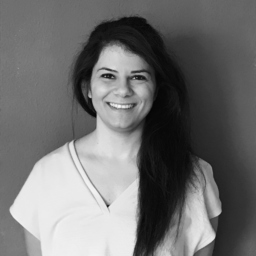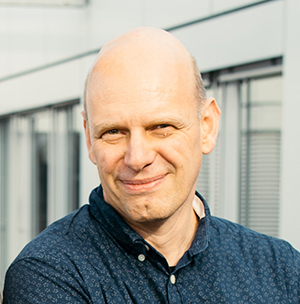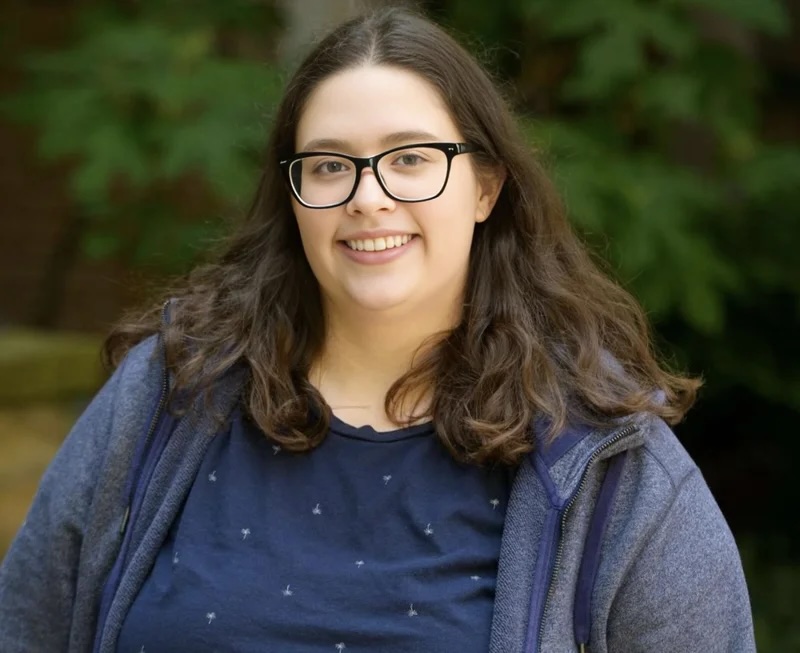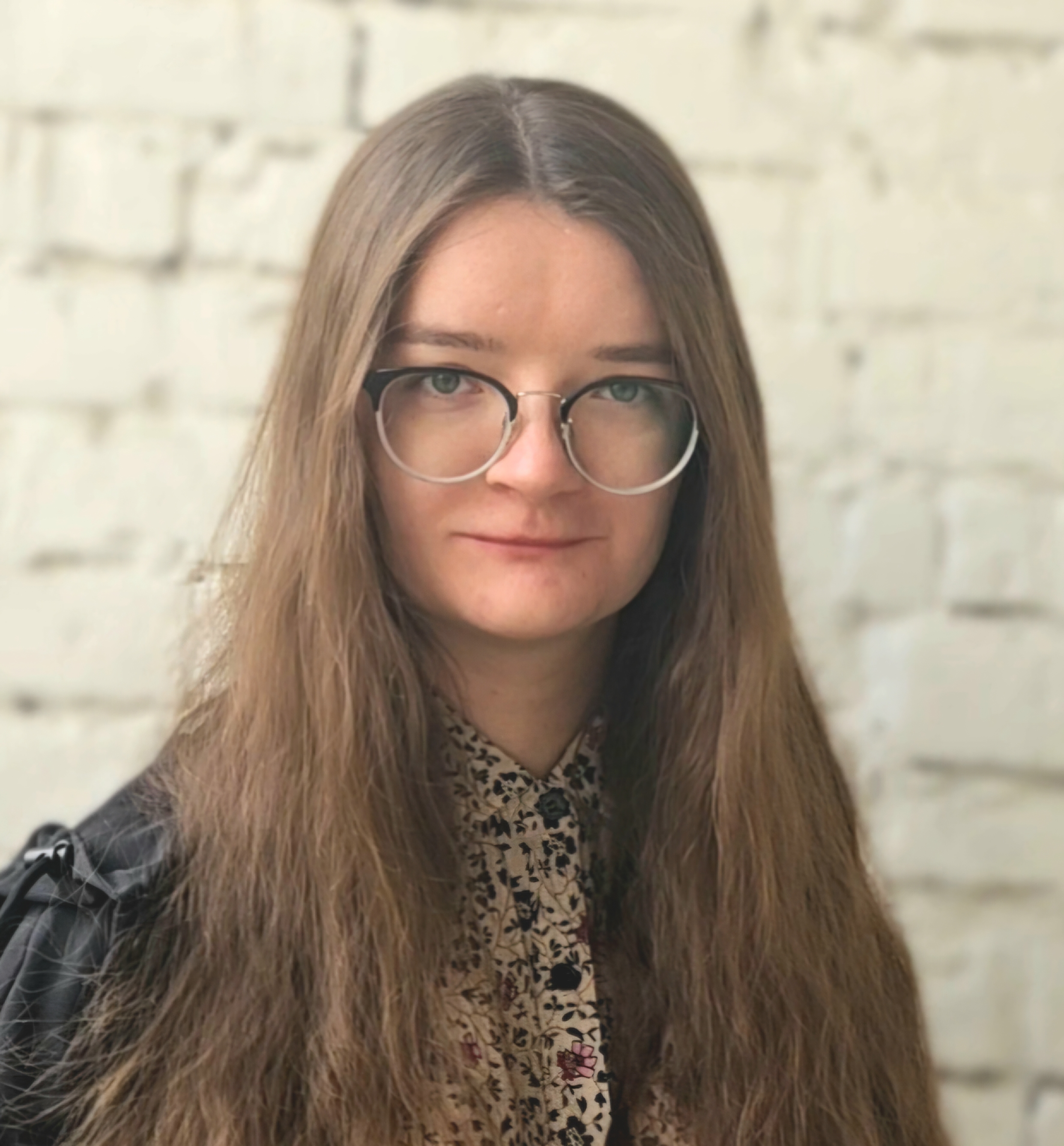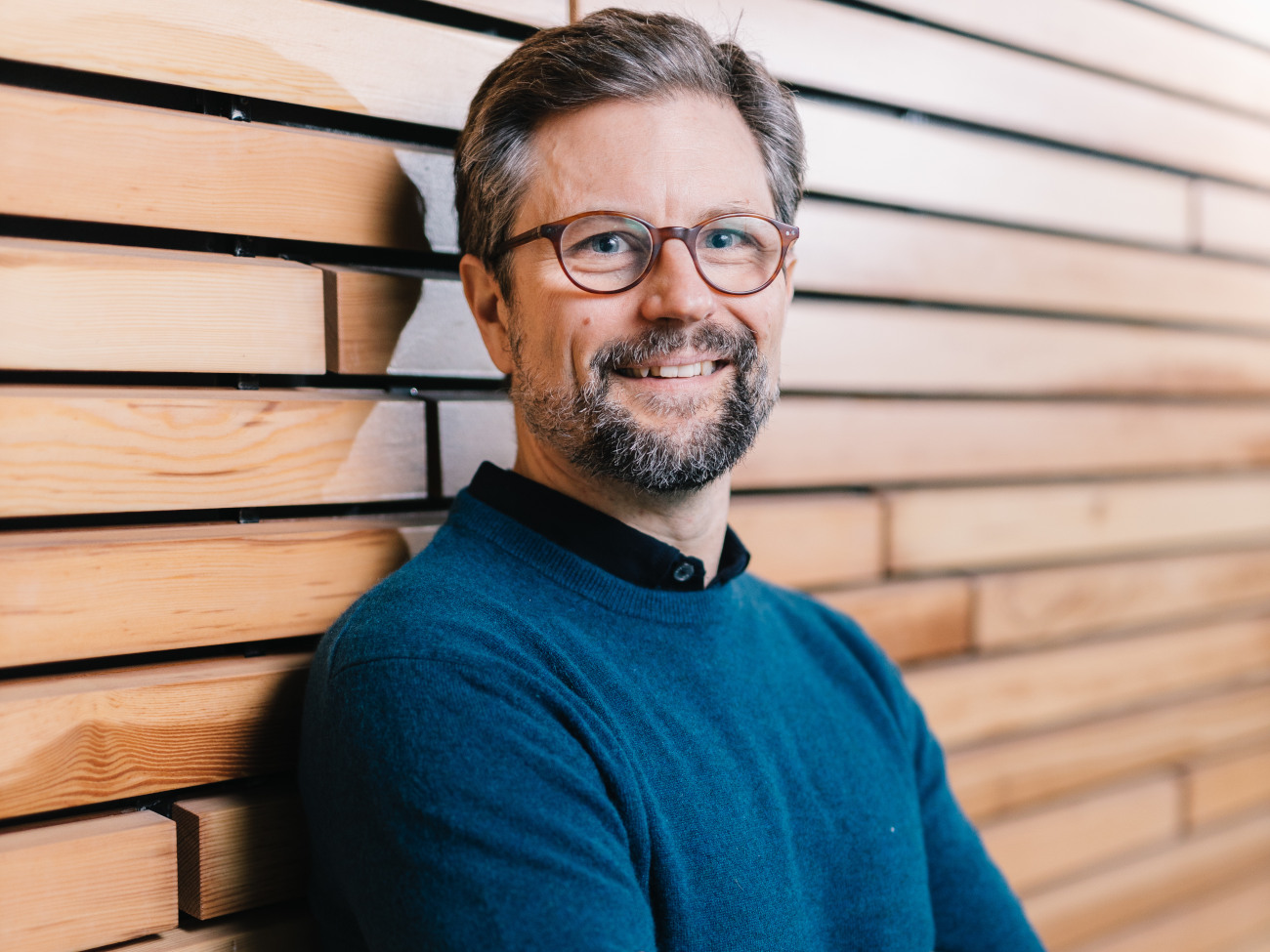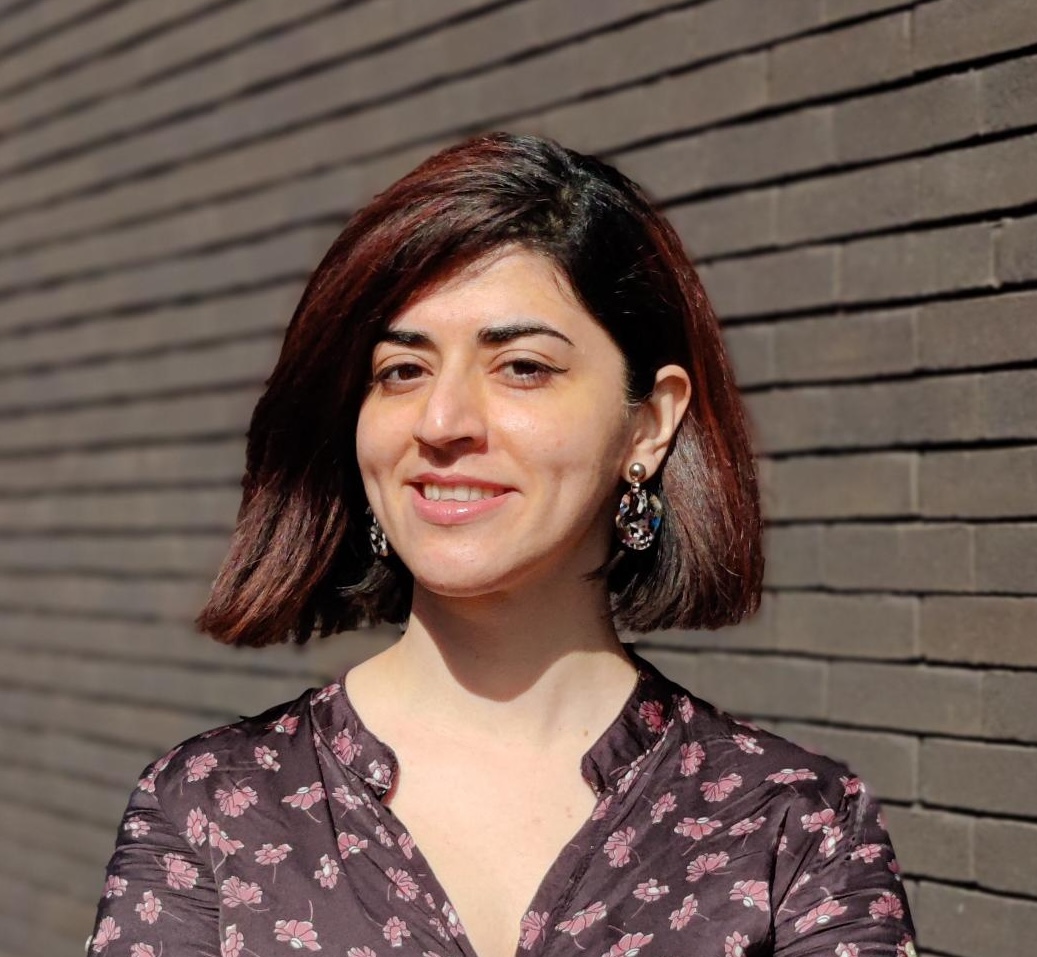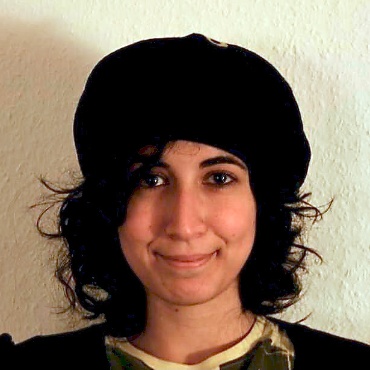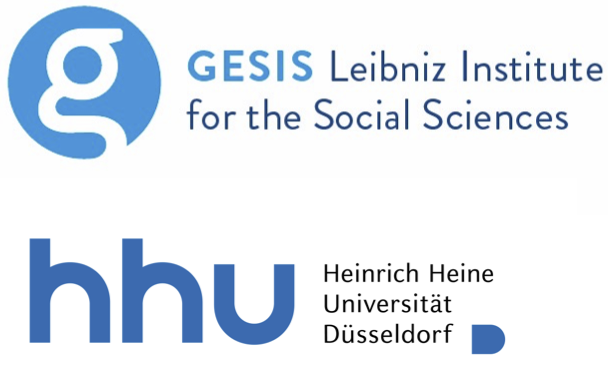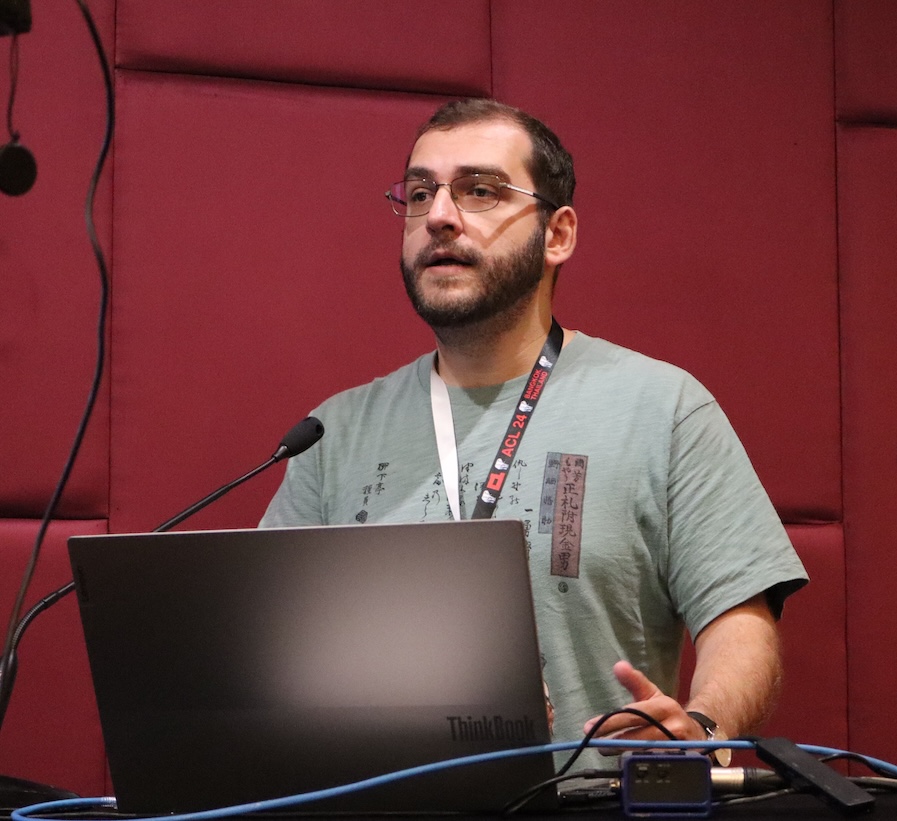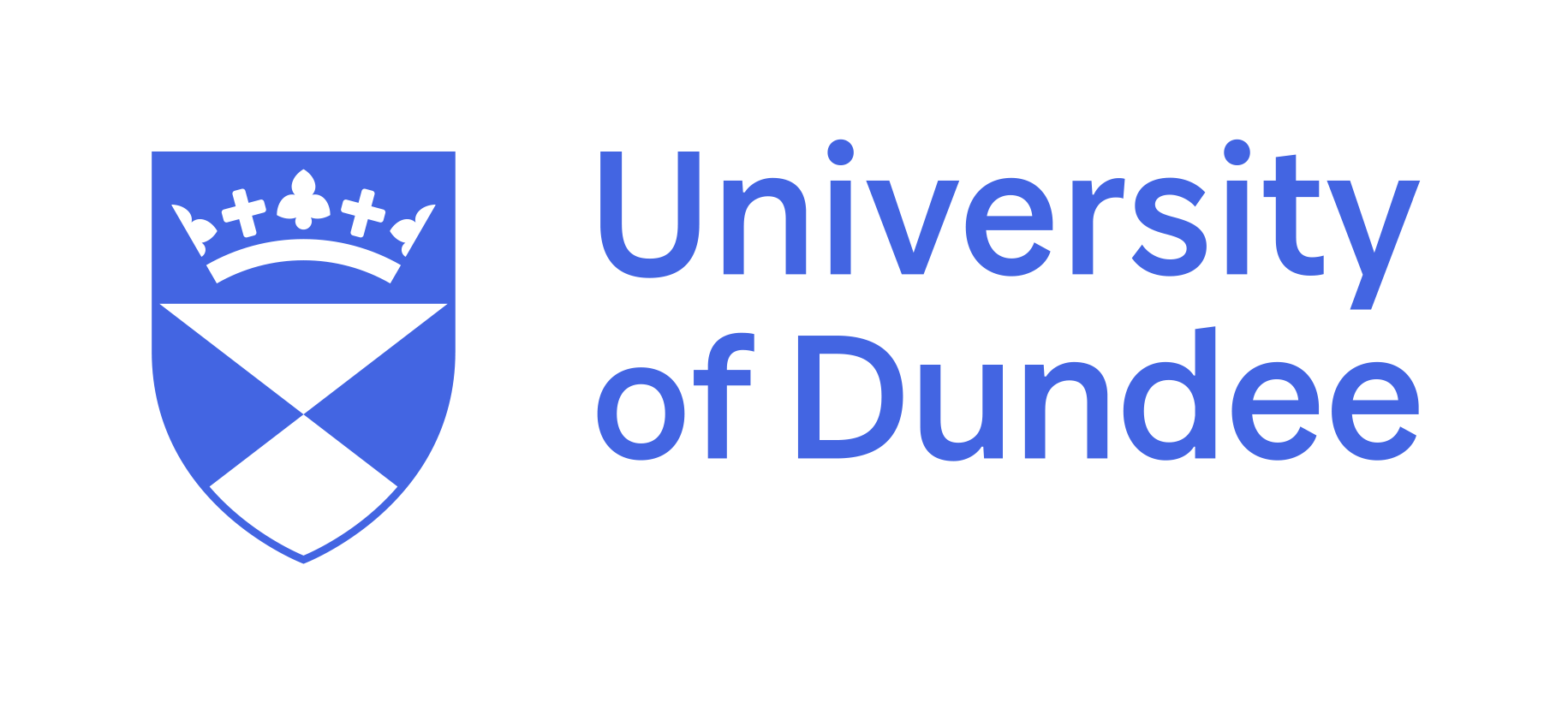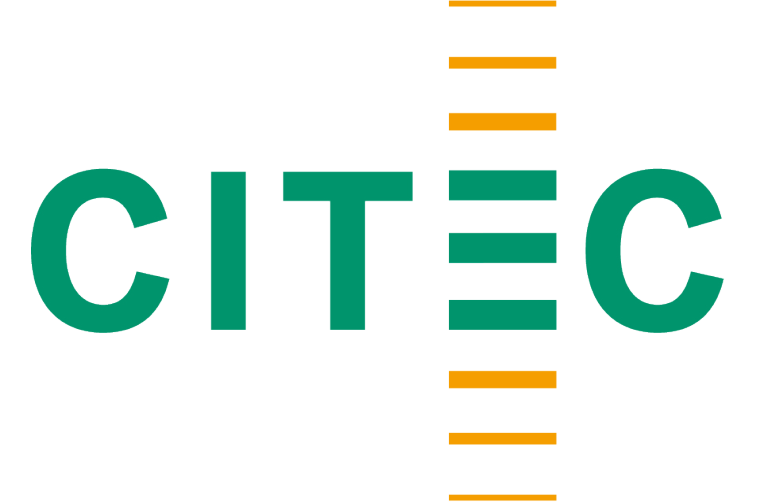We're meeting at 20:00 in Kolariks Freizeitbetriebe GmbH , Prater, 1020 Wien for a social event! Join us!
The workshop program is out.
The deadline for non-archival submissions is extended to April 30th. Information on submission details and links.
Important notice: The deadline for direct archival submission on April 17th is final and will NOT be extended.
March 25th 2025 Happy to announce our Keynote Speaker: Andreas Vlachos from University of Cambridge.
January 28th 2025 12th Argument mining workshop will host two Shared Tasks
January 15th 2025 Check the Important Dates
January 15th 2025 The 1st Call for Papers is out!
December 6th 2024 Call for Shared Task is out
December 6th 2024 The official ArgMining 2025 website is launched.
Argument Mining (also known as “argumentation mining”) is an emerging research area within computational linguistics that started with focusing on automatically identifying and classifying argument elements, covering several text genres such as legal documents, news articles, online debates, scholarly data, and many more. In recent years, the field (broadly Computational Argumentation) has grown to explore argument quality and synthesis on many levels. The field offers practical uses such as argument-focused search and debating technologies, e.g., IBM Project Debater. The growing interest in computational argumentation has led to several tutorials at major NLP conferences.
Besides providing a forum to discuss and exchange cutting edge research in this field, a secondary goal of this year's edition will be to broaden the disciplinary scope of the workshop by inviting other disciplines (e.g., (computational) social and political science, psychology, humanities) as well as other subareas of NLP to actively participate in the workshop and further shaping the field of argument mining. In particular, we would like to create synergies between the fields of argument mining and natural language reasoning.
The workshop will be co-located with ACL 2025 and held in Vienna, Austria in a hybrid format.
Important Dates
- Workshop: July 31st, 2025
- Direct paper submission due (OpenReview):
April 17th, 2025 - Non-archival submission due (OpenReview):
April 17th, 2025April 30th, 2025 - Commitment deadline for ARR papers (OpenReview): May 21st, 2025
- Notification of acceptance: May 28th, 2025
- Camera-ready papers due: June 4th, 2025
Keynote Speaker
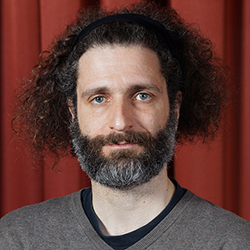
Andreas Vlachos Department of Computer Science and Technology, University of Cambridge
Title: Fact-checking as a conversation
About the Talk: Misinformation is considered one of the major challenges of our times resulting in numerous efforts against it. Fact-checking, the task of assessing whether a claim is true or false, is considered a key in reducing its impact. In the first part of this talk I will present our recent and ongoing work on automating this task using natural language processing, including neurosymbolic inference, and using a search engine as a source of evidence. In the second part of this talk, I will present an alternative approach to combatting misinformation via dialogue agents, and present results on how internet users engage in constructive disagreements and problem-solving deliberation.
About the Speaker: Andreas Vlachos is a professor of NLP and Machine Learning at the University of Cambridge. Among the many things he has worked on, we find constructiveness in argumentation, fact checking, media bias, dialogue modeling.
Panel Session
Broadening the scope of Argument Mining
The aim of the panel is to establish a dialogue between between Argument Mining researchers (from the panel itself and the workshop audience) and researchers form a set of disciplines tightly connected to Argument Mining (Political Science, Communication Science, Linguistics, Computational Social Science) on a variety of themes such as a) the challenges encountered by NLP research dealing with fine-grained conceptualizations which are typically aimed at when targeting theory-based questions, b) the progress that Argument Mining (and in general, NLP) can experience when challenged with interdisciplinary work, and c) the boundaries that nowadays LLM's superpowers should nevertheless be confronted with: the fact that LLMs (allegedly) "can do everything because it has seen everything" does not mean that any possible task should be done with them — this is particularly relevant with argument mining research, which touches upon crucial issues such as opinion mining, with the potential for manipulative uses of the resulting technology.
Panelists
Program
09:00–09:15 Opening Remarks
09:15–10:30 Paper Session I
- Long paper: 09:15–09:30 Stance-aware Definition Generation for Argumentative Texts
- Long paper: 09:30–09:45Exploring LLM Priming Strategies for Few-Shot Stance Classification
- Long paper: 09:45–10:00Multi-Agent LLM Debate Unveils the Premise Left Unsaid
- Long paper: 10:00–10:15From Debates to Diplomacy: Argument Mining Across Political Registers
- Long paper: 10:15–10:30“The Facts Speak for Themselves”: GPT and Fallacy Classification
10:30–11:00 Coffee Break
11:00–12:00 Keynote Talk: Fact-checking as a conversation
12:00–12:30 Paper Session II
- Long paper: 12:00–12:15 Aspect-Based Opinion Summarization with Argumentation Schemes
- Long paper: 12:15–12:30Automatic Identification and Naming of Overlapping and Topic-specific Argumentation Frames
12:30–14:00 Lunch Break
14:00–14:40 Shared Task Session
- 14:00–14:20 Critical Questions Generation Shared Task
- 14:20–14:40
-
MM-ArgFallacy2025: Multimodal Argumentative Fallacy Detection and Classification on Political Debates
-
Leveraging context for multi-modal fallacy classification in political debates
-
MM-ArgFallacy2025: Multimodal Argumentative Fallacy Detection and Classification on Political Debates
Long paper: 14:40–15:30 Paper Session III
- Long paper: 14:40–14:55 Multi-Class versus Means-End: Assessing Classification Approaches for Argument Patterns
- Short paper: 14:55–15:05Toward Reasonable Parrots: Why Large Language Models Should Argue with Us by Design
- Short paper: 15:05–15:15
DebArgVis: An Interactive Visualisation Tool for Exploring Argumentative Dynamics in Debate
- Short paper: 15:15–15:25Reasoning Under Distress: Mining Claims and Evidence in Mental Health Narratives
15:00–16:00 Coffee Break
16:00–17:15 Poster Session (Main Workshop Papers + Non-Archival Papers + Shared Task Papers )
17:15–18:00 Panel+ Closing Remarks
Accepted Posters
Workshop Posters
- Old but Gold: LLM-Based Features and Shallow Learning Methods for Fine-Grained Controversy Analysis in YouTube Comments
- On Integrating LLMs Into an Argument Annotation Workflow
- Leveraging Graph Structural Knowledge to Improve Argument Relation Prediction in Political Debates
- A Simple but Effective Context Retrieval for Sequential Sentence Classification in Long Legal Documents
- Argumentative Analysis of Legal Rulings: A Structured Framework Using Bobbitt’s Typology
- Investigating Subjective Factors of Argument Strength: Storytelling, Emotions, and Hedging
- Reproducing the Argument Quality Prediction of Project Debater
- Retrieving Argument Graphs Using Vision Transformers
- Practical Solutions to Practical Problems in Developing Argument Mining Systems
- Storytelling in Argumentative Discussions: Exploring the Use of Narratives in ChangeMyView
Shared Task Systems
Critical Questions Generation Shared Task
- StateCloud at Critical Questions Generation: Prompt Engineering for Critical Question Generation
- Tdnguyen at CQs-Gen 2025: Adapt Large Language Models with Multi-Step Reasoning for Critical Questions Generation
- Webis at CQs-Gen 2025: Prompting and Reranking for Critical Questions
- DayDreamer at CQs-Gen 2025: Generating Critical Questions through Argument Scheme Completion
- CUET_SR34 at at CQs-Gen 2025: Critical Question Generation via Few-Shot LLMs -- Integrating NER and Argument Schemes
- ARG2ST at CQs-Gen 2025: Critical Questions Generation through LLMs and Usefulness-based Selection
- CriticalBrew at CQs-Gen 2025: Collaborative Multi-Agent Generation and Evaluation of Critical Questions for Arguments
- ELLIS Alicante at CQs-Gen 2025: Winning the critical thinking questions shared task: LLM-based question generation and selection
- Mind_Matrix at CQs-Gen 2025: Adaptive Generation of Critical Questions for Argumentative Interventions
- COGNAC at CQs-Gen 2025: Generating Critical Questions with LLM-Assisted Prompting and Multiple RAG Variants
- TriLLaMa at CQs-Gen 2025: A Two-Stage LLM-Based System for Critical Question Generation
MM-ArgFallacy2025: Multimodal Argumentative Fallacy Detection and Classification on Political Debates
- Argumentative fallacy detection in political debates
- Multimodal argumentative fallacy classification in political debates
- Prompt-guided augmentation and multi-modal fusion for argumentative fallacy classification in political debates
Non-Archival Posters
- A Framework for Argument Mining in Halakhic Traditional Texts
- REASONINGFLOW: Semantic Structure of Complex Reasoning Traces
- Argumentative Dialogue Snippet Coherence: An Evaluation of Inference Anchoring Theory
- Human vs. LLM-generated Arguments: Distinct Styles and Quality in Persuasive Contexts
- It Is Not Only the Negative that Deserves Attention! Understanding, Generation & Evaluation of (Positive) Moderation
- Argument Annotation in Japanese Employment Law Cases: Preliminary Results
- When should a moderator intervene? Leveraging annotator trends to better handle low-resource, subjective tasks
- Political Decision-Making in Language Models: Measuring Ideological Bias through Simulation
Submission Topics
The topics for submissions include but are not limited to:
- Identification, Assessment, and Analysis of Arguments
- Identification of argument components (e.g., premises and conclusions)
- Structure analysis of arguments within and across documents
- Relation Identification between arguments and counterarguments (e.g., support and attack)
- Creation and evaluation of argument annotation schemes, relationships to linguistic and discourse annotations, (semi-) automatic argument annotation methods and tools, and creation of argumentation corpora
- Assessment of arguments with respect to various properties (e.g., stance, clarity)
- Generation of Arguments, Multi-modal and Multi-lingual Argument Mining
- Automatic generation of arguments and their components
- Consideration of discourse goals in argument generation
- Argument mining and generation from multi-modal/multi-lingual data
- Mining and Analysis of different Genres and Domains of Arguments
- Argument mining in specific genres and domains (e.g., education, law, scientific writing)
- Analysis of unique styles within genres (e.g., short informal text, highly structured writing)
- Modelling, assessing, and critically reflecting on the argumentative reasoning capabilities of Large Language Models
- Knowledge Integration, Information Retrieval, and Real-world Applications
- Integration of commonsense and domain knowledge into argumentation models
- Combination of information retrieval methods with argument mining
- Real-world applications, including argument web search, opinion analysis and summarization, and misinformation detection
- Interdisciplinary interfaces of Argument Mining
- Mining political discourse, by experts and laypeople
- Argument mining support for deliberation
- Persuasion and convincingess from a psychological perspective
- Subjectivity, disagreements and perspectivism in argumentation
- Ethical Considerations and Future Reflections
- Reflection on the ethical aspects and societal impact of argument mining methods
- Reflection on the future of argument mining in light of the fast advancement of large language models (LLMs)
CALL FOR PAPERS
The Workshop on Argument Mining provides a regular forum for presenting and discussing cutting-edge research in argument mining (a.k.a argumentation mining) for academic and industry researchers. By continuing a series of eleven successful previous workshops, this edition will welcome the submission of long and short papers, as well as extended abstracts and PhD proposals. It will also feature a number of shared tasks shared tasks and a keynote talk.
Check DATES and TOPICS.Submission Details
The organizing committee welcomes submitting long papers, short papers, extended abstracts and PhD proposals. Accepted papers will be presented via oral or poster presentations. Long and short papers will be included in the ACL proceedings as workshop papers. Extended abstracts and PhD proposals will be non-archival.
-
Archival submissions
- Long paper submissions must describe substantial, original, completed, and unpublished work. Wherever appropriate, concrete evaluation and analysis should be included. Long papers must be at most eight pages, including title, text, figures, and tables. An unlimited number of pages is allowed for references. Two additional pages are allowed for appendices, and an extra page is allowed in the final version to address reviewers’ comments.
- Short paper submissions must describe original and unpublished work. Please note that a short paper is not a shortened long paper. Instead, short papers should have a point that can be made in a few pages, such as a small, focused contribution, a negative result, or an interesting application nugget. Short papers must be at most four pages, including title, text, figures, and tables. An unlimited number of pages is allowed for references. One additional page is allowed for the appendix, and an extra page is allowed in the final version to address reviewers’ comments.
Non-Archival submissions
- Extended abstracts must be at most two pages including references and an additional page as an appendix for tables/figures describing ongoing projects, interesting pieces of data or results, or already published work.
While selecting the abstracts, we will keep two constraints in mind:
a) Fit to the workshop, in particular to the special theme "Broadening the scope of Argument Mining" b) Priority to papers with doctoral students as 1st authors that could not be presented at a *CL conference due to visa restrictions. - PhD proposals must describe PhD projects being or to be developed within the broad field of natural language argumentation processing. PhD proposals must be at most four pages including the main research directions or challenges being investigated, the specific contributions made (on the research direction), and the directions for the remaining work. A dedicated poster session will be hosted, allowing students to get feedback and discuss their work with a broad and multidisciplinary community.
- Extended abstracts must be at most two pages including references and an additional page as an appendix for tables/figures describing ongoing projects, interesting pieces of data or results, or already published work.
Multiple Submissions
ArgMining 2025 will not consider any paper under review in a journal or another conference or workshop at the time of submission, and submitted papers must not be submitted elsewhere during the review period. ArgMining 2025 will also accept submissions of ARR-reviewed papers, provided that the ARR reviews and meta-reviews are available by the ARR commitment deadline (May 21st). However, ArgMining 2025 will not accept direct submissions that are actively under review in ARR, or that overlap significantly (>25%) with such submissions.Submission Format
All long, short, and demonstration submissions must follow the two-column ACL 2025 format. Authors are expected to use the LaTeX or Microsoft Word style template LaTeX or Microsoft Word style template. Submissions must conform to the official ACL style guidelines contained in these templates. Submissions must be electronic and in PDF format.Submission Links
Authors have to fill in the submission form in the OpenReview system and upload a PDF of their paper here before April 17, 2025, 11:59 pm UTC-12h (anywhere on earth).- Archival submissions : Long paper, Short paper
- Non-archival submissions: Extended Abstract, PhD proposals
Double Blind Review
ArgMining 2025 will follow the ACL policies preserving the integrity of double-blind review for long and short paper submissions. Papers must not include authors' names and affiliations. Furthermore, self-references or links (such as GitHub) that reveal the author’s identity, e.g., “We previously showed (Smith, 1991) …” must be avoided. Instead, use citations such as “Smith previously showed (Smith, 1991) …” Papers that do not conform to these requirements will be rejected without review. Papers should not refer, for further detail, to documents that are not available to the reviewers. For example, do not omit or redact important citation information to preserve anonymity. Instead, use the third person or named reference to this work, as described above (“Smith showed” rather than “we showed”). Papers may be accompanied by a resource (software and/or data) described in the paper, but these resources should also be anonymized. Unlike long and short papers, demo descriptions will not be anonymous. Demo descriptions should include the authors’ names and affiliations, and self-references are allowed.Anonimity Period (taken from the ACL call for papers in verbatim for the most part) We follow the ACL Policies for Review and Citation. Submissions must be anonymized, but there is no anonymity period or limitation on posting or discussing non-anonymous preprints while the work is under peer review.
Best Paper Award
In order to recognize significant advancements in argument mining science and technology, ArgMining 2025 will include the Best Paper award. All papers at the workshop are eligible for the best paper award, and a selection committee consisting of prominent researchers in the fields of interest will select the award recipients.Committee
Organizing Committee
Program Committee
- Rodrigo Agerri, University of the Basque Country
- Yamen Ajjour, Universität Hannover
- Alaa Alhamzeh, Universität Passau
- Ashish Anand, Indian Institute of Technology, Guwahati
- Elena Cabrio, Université Côte d'Azur
- Blanca Calvo Figueras, Universidad del País Vasco
- Chung-Chi Chen, AIST, National Institute of Advanced Industrial Science and Technology
- Johannes Daxenberger, summetix GmbH
- Roxanne El Baff, German Aerospace Center and Bauhaus-University Weimar
- Neele Falk, University of Stuttgart, Universität Stuttgart
- Debela Gemechu, University of Dundee
- Lynn Greschner, Otto-Friedrich Universität Bamberg
- Ankita Gupta, University of Massachusetts Amherst
- Annette Hautli-Janisz, Universität Passau
- Khalid Al Khatib, University of Groningen
- Johannes Kiesel, GESIS – Leibniz Institute for the Social Sciences
- Zlata Kikteva, Universität Passau
- Nadin Kökciyan, University of Edinburgh, University of Edinburgh
- John Lawrence, University of Dundee
- Davide Liga, University of Luxemburg
- Eimear Maguire, University of Dundee
- Maximilian Maurer, GESIS Leibniz Institute for the Social Sciences
- Elena Musi, University of Liverpool
- Irina Nikishina, University of Hamburg
- Matthias Orlikowski, Universität Bielefeld
- Joonsuk Park, University of Richmond
- Martin Pereira, University of Santiago de Compostela
- Chris Reed, University of Dundee
- Julia Romberg, GESIS Leibniz Institute for the Social Sciences
- Ameer Saadat-Yazdi, University of Edinburgh
- Sougata Saha, Mohamed bin Zayed University of Artificial Intelligence
- Patrick Saint-Dizier, CNRS
- Gabriella Skitalinskaya, Duolingo
- Manfred Stede, Universität Potsdam
- Benno Stein, Bauhaus Universität Weimar
- Regina Stodden, Universität Bielefeld
- Eva Maria Vecchi, University of Stuttgart, Universität Stuttgart
- Serena Villata, CNRS
- Henning Wachsmuth, Leibniz Universität Hannover
- Vern R. Walker, Hofstra University
- Dexter Williams, University of Illinois at Urbana-Champaign
- Hiroaki Yamada, Institute of Science Tokyo
- Tangming Yuan, University of York
- Yang Zhong, University of Pittsburgh
Best Paper Committee
- Rodrigo Agerri, University of the Basque Country
- Paolo Torroni, University of Bologna
- Elena Cabrio, Université Côte d’Azur
Past Workshops
- 2024 (Proceedings)
- 2023 (Proceedings)
- 2022 (Proceedings)
- 2021 (Proceedings)
- 2020 (Proceedings)
- 2019 (Proceedings)
- 2018 (Proceedings)
- 2017 (Proceedings)
- 2016 (Proceedings)
- 2015 (Proceedings)
- 2014 (Proceedings)
Policy
We abide by the ACL anti-harassment policy.


